President Enrique Barón Crespo’s mandate was marked by his perseverance and finally his victory to give the European Parliament new responsibilities. The Maastricht Treaty would establish, inter alia, cooperation and consultation with the Council. Enrique Barón Crespo also proposed supplementing the Intergovernmental Conferences (IGCs) on Economic and Monetary Union with another IGC on Political Union, like Mitterrand and Kohl. In order to offer in this context the vision and voice of democracy through collaboration with the European Parliament, the IGC on Political Union established the inter-institutional and preparatory conferences and the first Conference of Parliaments of the European Community.
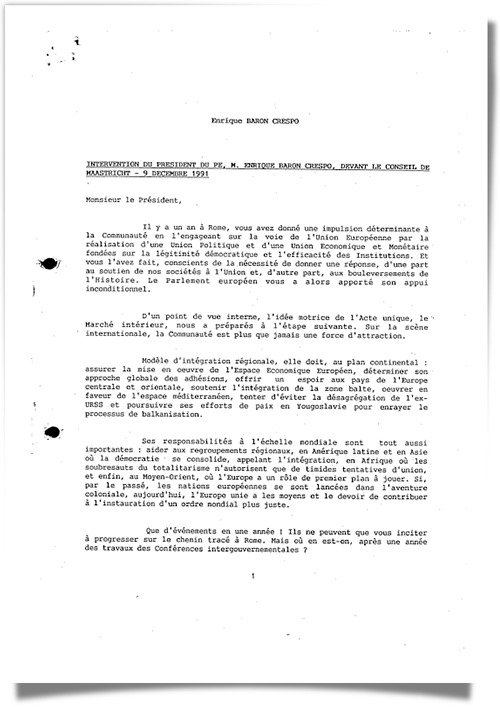
Finally, the period from July 1989 to January 1992 was distinguished by the advance of democracy in Europe through the liberation of part of the Eastern bloc from communism and its most symbolic event, the fall of the Berlin Wall.
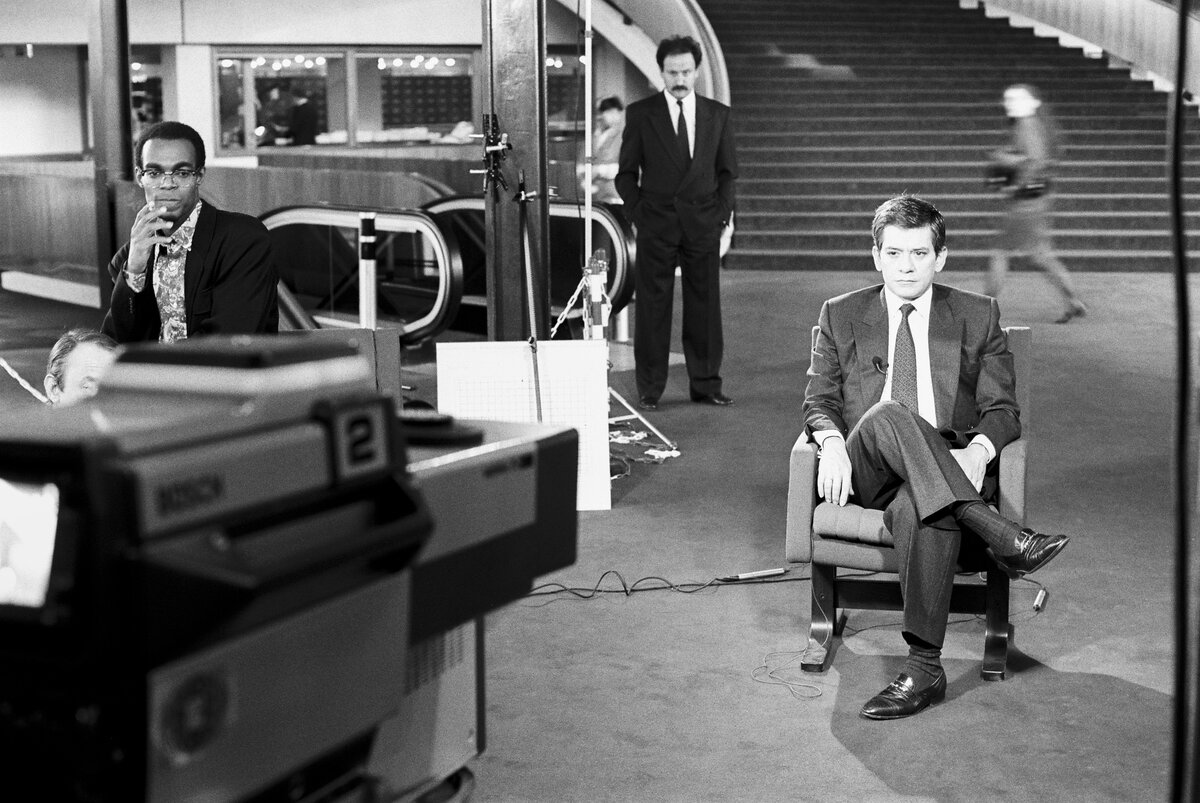 Interview with Enrique Barón Crespo, President of the European Parliament in Strasbourg © European Communities, 1989
Interview with Enrique Barón Crespo, President of the European Parliament in Strasbourg © European Communities, 1989
As Enrique Barón Crespo puts it himself, “the wind of freedom has not only blown into Europe” and we can cite, for example, his support for the process of democratic transition in Chile or the peace process in the Middle East.
Thus, Enrique Barón Crespo’s mandate was rich in political events, both from the point of view of European integration and from the point of view of international relations. The idea that would characterise this mandate was “the consolidation of the democratic deficit” in Europe but also beyond its borders.
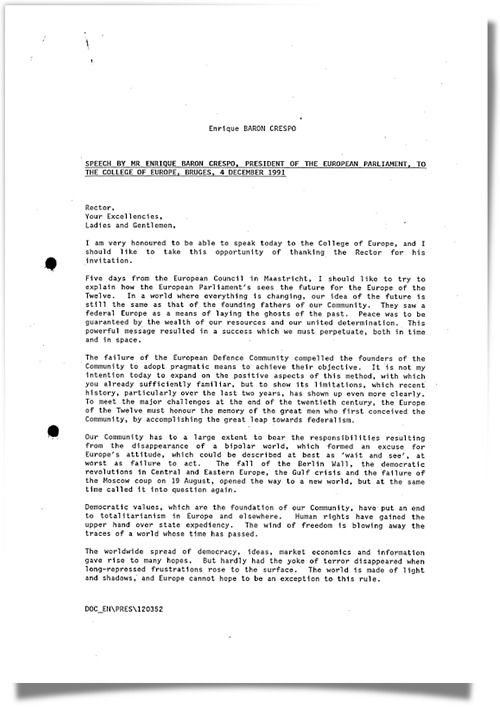
In his last speech before the European Parliament on 12 December 1991, President Enrique Barón Crespo emphasized the demands that European integration, with the imminent signing of the Maastricht Treaty, had put on the agenda the question of the future of Europe and the future responsibilities of the European Parliament.
He therefore expressed that
“(...) careful study should be given to the entire procedure for appointing the Commission, European electoral law, the status of Members and the membership of the European Parliament (...) we shall all continue to work for a European union based on true democracy”
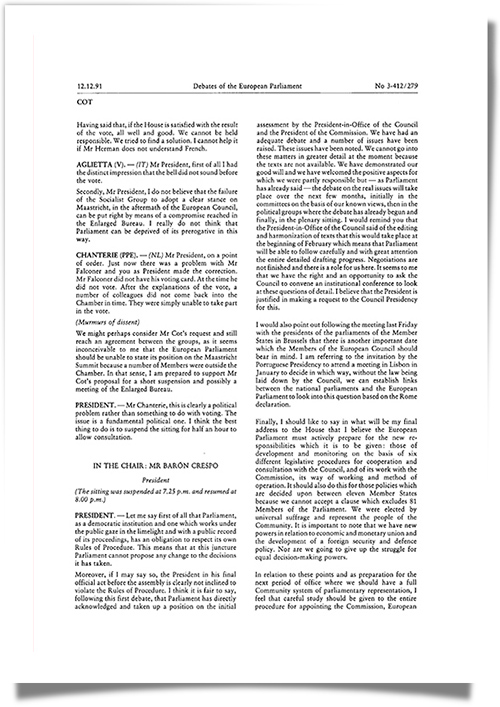
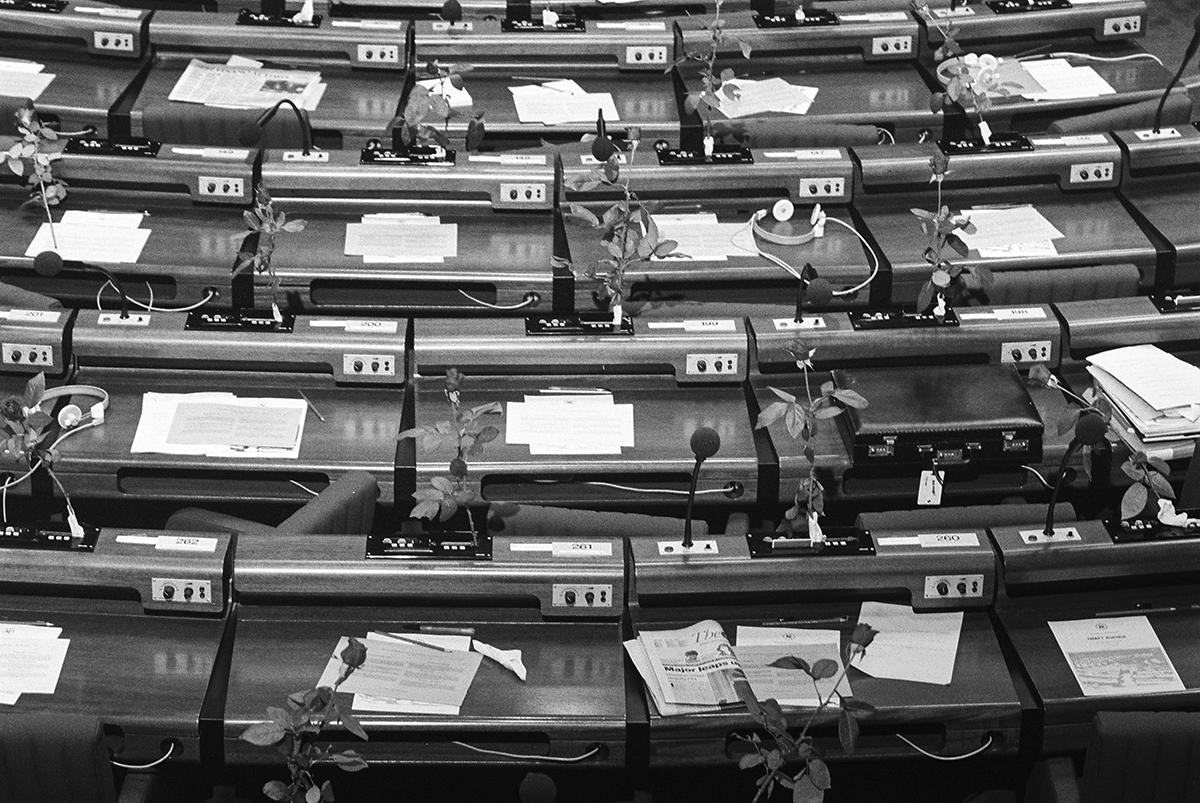 Red roses, symbolising social democracy, in the Strasbourg Chamber on 25 July 1989, the day Enrique Barón Crespo, Member of the Socialist Group in the European Parliament, was elected President. © European Communities, 1989
Red roses, symbolising social democracy, in the Strasbourg Chamber on 25 July 1989, the day Enrique Barón Crespo, Member of the Socialist Group in the European Parliament, was elected President. © European Communities, 1989
